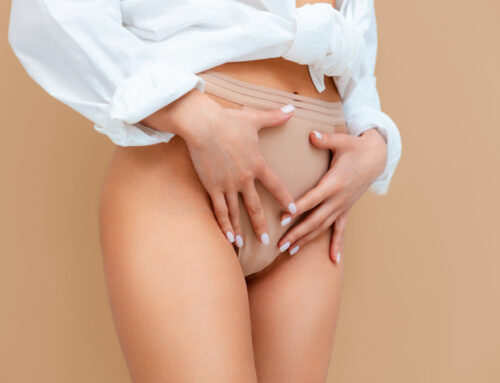We often hear from women confused about whether they’re experiencing a hot flash or just feeling hot. This question is more common than you might think, and understanding the distinction is key to managing menopause symptoms effectively. As your trusted female hormone specialist in Los Angeles, we’re here to help you navigate through the complexities of menopause hot flashes and provide you with the best treatment options available.
What is a Hot Flash?
Hot flashes are one of the most common symptoms of menopause, affecting about three-quarters of all menopausal women. A hot flash is a sudden feeling of warmth that spreads over the body but is most intensely felt in the head and chest. It can be accompanied by flushing (reddening of the skin), sweating, and sometimes followed by chills. Hot flashes can vary in frequency and intensity, typically lasting between 30 seconds and 10 minutes.
A hot flash is a sudden feeling of warmth that usually starts at the face or chest before spreading to other parts of the body. These episodes can last anywhere from a few seconds to several minutes and are often accompanied by redness of the skin, known as flushing, and can end in sweating. For some women, hot flashes occur occasionally; for others, they happen several times a day, significantly affecting their quality of life.
Hot Flash Triggers
Understanding what triggers your hot flashes can be crucial in managing them. Common triggers include:
- Spicy foods: These can provoke your body’s temperature control system.
- Alcohol and caffeine: Both can affect your hormonal balance and temperature regulation.
- Stress: Emotional stress can trigger hormonal fluctuations that lead to hot flashes.
- Warm environments: Simply being in a warm room or a hot climate can initiate a hot flash.
Identifying and avoiding these triggers can be a first step toward relief.
What Can Be Mistaken for Hot Flashes?
It’s important to distinguish hot flashes from general overheating or reactions to external environments. Conditions like hyperthyroidism, certain cancers, and infections can also mimic the symptoms of hot flashes. Unlike hot flashes that are typically brief and episodic, overheating from external temperatures tends to be constant as long as the external condition persists. Similarly, medical conditions like hyperthyroidism or infections will often present with additional symptoms such as weight loss, palpitations, or fever, which are not common with menopause.
Differentiating Between Hot Flashes and General Heat Discomfort
While hot flashes can make you feel excessively warm, they are not caused by external temperatures. Here’s how you can tell the difference:
- Duration and Onset: Hot flashes tend to come on rapidly and can last from a few seconds to several minutes. Being hot from environmental factors usually lasts as long as the external cause is present.
- Accompanying Symptoms: Unlike regular heat discomfort, hot flashes are often accompanied by other symptoms like sweating, redness of the face and chest, and rapid heartbeat. After a hot flash, you might feel chilled or shivery as your body temperature returns to normal.
Best Treatments and Supplements for Menopause Hot Flashes
Hormone Replacement Therapy (HRT)
For many women, HRT is the most effective treatment for menopause symptoms, including hot flashes. It involves supplementing the body with estrogen or a combination of estrogen and progesterone, which are at lower levels during menopause.
Non-Hormonal Medications
For women who cannot or choose not to use HRT, non-hormonal medications like antidepressants in low doses or medications used to treat nerve pain can be effective alternatives.
Natural Supplements
Many women find relief using natural supplements and herbs:
- Black cohosh: Well-known for its potential to reduce hot flashes.
- Soy isoflavones: These act similarly to estrogen in the body and can mitigate mild hot flashes.
- Vitamin E: This antioxidant may provide mild relief from hot flashes.
Lifestyle Changes
Simple lifestyle changes can also make a significant difference:
- Dressing in layers: Allows you to adjust your clothing to how you’re feeling.
- Staying hydrated: Helps regulate body temperature.
- Practicing relaxation techniques: Yoga and meditation can reduce stress and the frequency of hot flashes.
How We Can Help?
At Cherillyn Menopause Relief, we understand that each woman’s experience with menopause is unique. That’s why we offer personalized consultations to discuss your specific symptoms and treatment options. Our team is highly experienced in providing holistic care and menopause hormone treatments that address not just the symptoms but also the root causes of menopause-related issues.
If you’re struggling with hot flashes or other menopause-related symptoms, schedule a consultation with us today. We are dedicated to helping you find the most effective and comfortable treatment that fits your lifestyle and needs. Let us help you manage your menopause with confidence and regain control over your body.
Cherillyn Olivos
I'm Cherillyn, owner of BeBalanced Woodland Hills, specializing in holistic women's health and hormone balance. My extensive wellness experience fuels my commitment to empower women to achieve optimal health and vitality. At BeBalanced, we blend traditional and alternative medicine to provide personalized care tailored to your specific needs.





